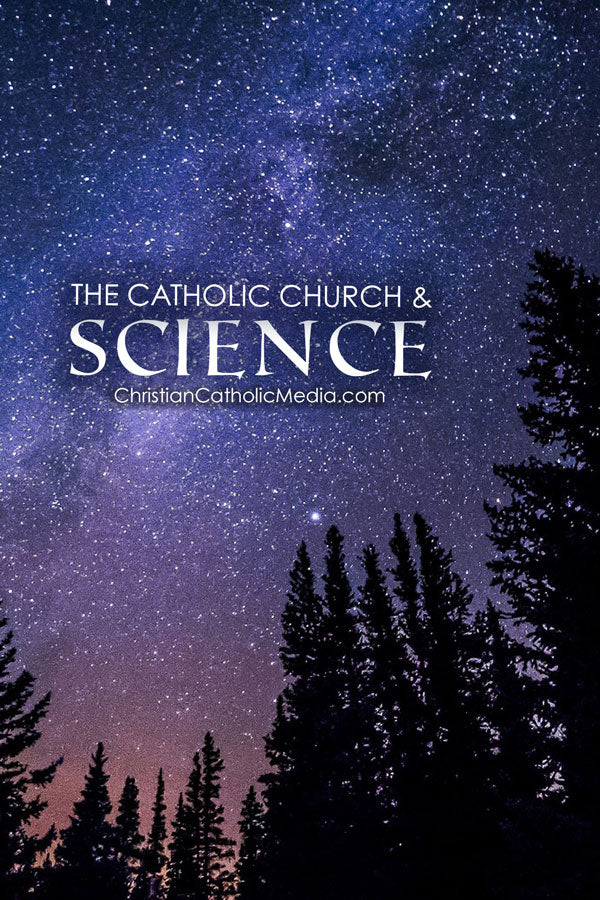
Catholic Church and Science
There are many misconceptions about Catholicism that drive people away, or keep them away. Only one example of this is that science and Catholicism are necessarily at odds. Here we’ll talk about where this idea comes from, and how it’s wrong.
Novels like Dan Brown’s Angels and Demons love to paint the Catholic church as an enemy of science and progress. However, many famous and influential scientists have actually been Catholic.

The Church and Heliocentrism
Nicolaus Copernicus, the first scientist to propose that the planets revolved around the sun, was actually a church official who worked in the office of his uncle, a Bishop. He was commissioned to help the church develop a more accurate calendar and his work On the Revolutions of Heavenly Bodies was dedicated to his patron, Pope Paul III.
It is true that the church rejected the work, though not violently. It is widely believed that Galileo Galilei was killed by the church for promoting the heliocentric theory. While It's true that Galileo was called before the inquisition, he was not executed by the church. Though he was asked not to publicly support heliocentrism, he lived the rest of his life in peace and comfort and continued writing.
Galileo has never been wholly exonerated by the church but the church is also no longer hostile to his views. Books by Galileo, Copernicus, and Kepler have all long been moved off of the church’s banned list. In recent history, popes have even praised the works of these early religious scientists.
The Church and Evolution
Hundreds of years later, another famous scientist would lay the grounds for the modern study of genetics. Gregor Mendel was the abbot of a catholic monetary but also spent years conducting experiments on flowers in the monastery's garden. These experiments would later find themselves on shelves next to the work of Charles Darwin, the founder of the theory of evolution.
Evolution is, of course, another issue that is made to look more controversial in the church than it really is. Official church documents state the belief in evolution and belief in God are not mutually exclusive.
Where Does the Rumor Come from?
So, if the Catholic church is not inherently against science, where does this miscommunication come from?
A lot of it has to do with ethics. Catholics and non-Catholic scientists often have different ethical standards. While the science may not be at odds, how it should be conducted may be.
One prescient example is that of stem cell research.
Different cells in our bodies that carry out different functions are structurally different. However, they are all made from template cells that can become any kind of cell in the body. These “template cells” are really called stem cells. These cells are highly sought after for advanced medical research.
The most convenient way to obtain stem cells is to harvest them from aborted fetuses. Because the Catholic Church teaches that life begins at conception and is categorically against abortion, they do not sanction research that uses stem cells from aborted fetuses.
So, while the Catholic church isn’t opposed to all stem cell research, critics will imply this on the grounds that the church is against research with embryonic stem cells.
In the end, the church is not now and never has been explicitly against science. The misconception that it is may be made out of ignorance but it is often made to promote a particular narrative. That narrative may be for entertainment or for political positioning.
Article written by Johnathan Jaehnig with Christian Catholic Media
Jon Jaehnig is a professional freelance writer and journalist, specializing in technology and health. He is a practicing Catholic and active Knight of Columbus living in upper Michigan, USA.
